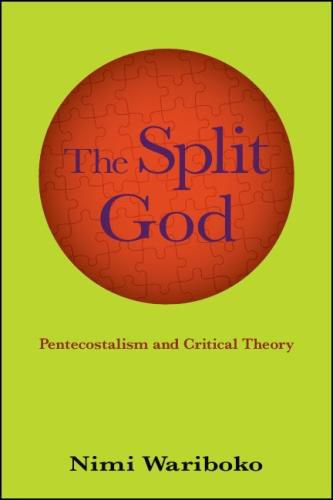Readings Newsletter
Become a Readings Member to make your shopping experience even easier.
Sign in or sign up for free!
You’re not far away from qualifying for FREE standard shipping within Australia
You’ve qualified for FREE standard shipping within Australia
The cart is loading…






Although Pentecostalism is generally considered a conservative movement, in The Split God Nimi Wariboko shows that its operative everyday notion of God is a radical one that poses, under cover of loyalty, a challenge to orthodox Christianity. He argues that the image of God that arises out of the everyday practices of Pentecostalism is a split God-a deity harboring a radical split that not only destabilizes and prevents God himself from achieving ontological completeness but also conditions and shapes the practices and identities of Pentecostal believers. Drawing from the work of Slavoj Zizek, Jacques Lacan, Jean-Luc Nancy, and Giorgio Agamben, among others, Wariboko presents a close reading of everyday Pentecostal practices, and in doing so, uncovers and presents a sophisticated conversation between radical continental philosophy and everyday forms of spirituality. By de-particularizing Pentecostal studies and Pentecostalism, Wariboko broadens our understanding of the intellectual aspects of the global Pentecostal and Charismatic movements.
$9.00 standard shipping within Australia
FREE standard shipping within Australia for orders over $100.00
Express & International shipping calculated at checkout
Although Pentecostalism is generally considered a conservative movement, in The Split God Nimi Wariboko shows that its operative everyday notion of God is a radical one that poses, under cover of loyalty, a challenge to orthodox Christianity. He argues that the image of God that arises out of the everyday practices of Pentecostalism is a split God-a deity harboring a radical split that not only destabilizes and prevents God himself from achieving ontological completeness but also conditions and shapes the practices and identities of Pentecostal believers. Drawing from the work of Slavoj Zizek, Jacques Lacan, Jean-Luc Nancy, and Giorgio Agamben, among others, Wariboko presents a close reading of everyday Pentecostal practices, and in doing so, uncovers and presents a sophisticated conversation between radical continental philosophy and everyday forms of spirituality. By de-particularizing Pentecostal studies and Pentecostalism, Wariboko broadens our understanding of the intellectual aspects of the global Pentecostal and Charismatic movements.